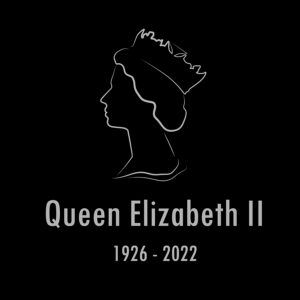It fell to Queen Elizabeth II during her long reign to keep up the appearance of far-flung imperial riches while presiding over the final disintegration of what had been the world’s most powerful, wealthiest empire.
As millions mourned her passing, some asked why in her decades as queen she had never apologized for all the evils perpetrated by her ancestors and the admirals, generals and colonial officials who had bullied and exploited millions from Africa to Asia to America.
The calls for a royal apology reminded me of the persistent demands that Japan apologize for all the wrongs committed by Japanese leaders as they sought to turn Japan into the hub of an empire extending from China through Korea and Southeast Asia, which the Japanese called a “co-prosperity sphere.” Over the years, demands for a Japanese apology have never ceased. The Japanese repeatedly express their sorrow for the sins of their forebears.
The problem with these demands is that it’s impossible to atone for the horrors of the past. There’s no way to compensate for the tragedies inflicted on the nations and people the Japanese sought to rule. Repeated calls for apologies distract from forming close military, diplomatic and commercial relations and complicate negotiations on difficult issues. Between Korea and Japan, these include wages owed to the heirs of the thousands of Koreans forced to work as de facto slave labor for huge Japanese manufacturers that should have no problem paying what they owe.
Elizabeth does not seem to have ever considered apologizing for anything. It was enough to know that she was not advocating a return to the days of British imperialism. For her to go through apologies for whatever the British did in asserting their rule over the Indian subcontinent, the “jewel in the crown” of the British monarch, would have been absurd. Apologies would only rekindle historical complexes, deepening rather than resolving differences. Critics may, on occasion, say Elizabeth owed an apology, but the rulers of India and other one-time British possessions have not been demanding apologies with the same fervor as the demands of Koreans for apologies from Japan.
There is, of course, a difference between the role of the British monarch and the Japanese prime minister. British royalty has little real power. The government is controlled by the prime minister, who must report to the monarch, now King Charles III, when they are selected and meets them on important policy decisions, in which the monarch has no role to play. It is a peculiar system in which the monarch is venerated but is restricted to an enormously ceremonial role that obviously inspires loyalty to royalty and to the country.
In Japan, the emperor was reduced to a similarly ceremonial position after the surrender of Japan in 1945, when it was Emperor Hirohito who read the famous surrender statement. Hirohito then appeared on the U.S. battleship Missouri to sign the surrender document in the presence of Gen. Douglas McArthur, the American commander who had been leading U.S. forces against the Japanese. Like Elizabeth, Hirohito and his successor have not apologized for the evils of Japanese imperialism.
In Japan, the prime minister is inevitably hounded by fresh demands for an apology, which Japanese prime ministers have given several times. No matter how they are worded, they are always denounced as “insincere.” And these apologies never resolve issues between Korea and Japan that may simply be insoluble.
South Korea’s President Yoon Suk-yeol, unlike some of his predecessors, appears seriously interested in improving relations with Japan for the sake of mutual security. He’s definitely toning down the anti-Japanese sentiments expressed by some of his predecessors, including Moon Jae-in, the progressive who did so much to damage Korean-Japanese relations.
Significantly, Yoon was in London for the funeral ceremony. He no doubt wants to develop strong relations with Britain, and he might also appreciate the example set by Elizabeth before her own people and the rest of the world. The queen knew how to stand for peace and goodwill — by her example, encouraging harmony without stooping to the level of considering meaningless apologies that she knew would do nothing to improve or advance relations between Britain and the lands it conquered and ruled.

